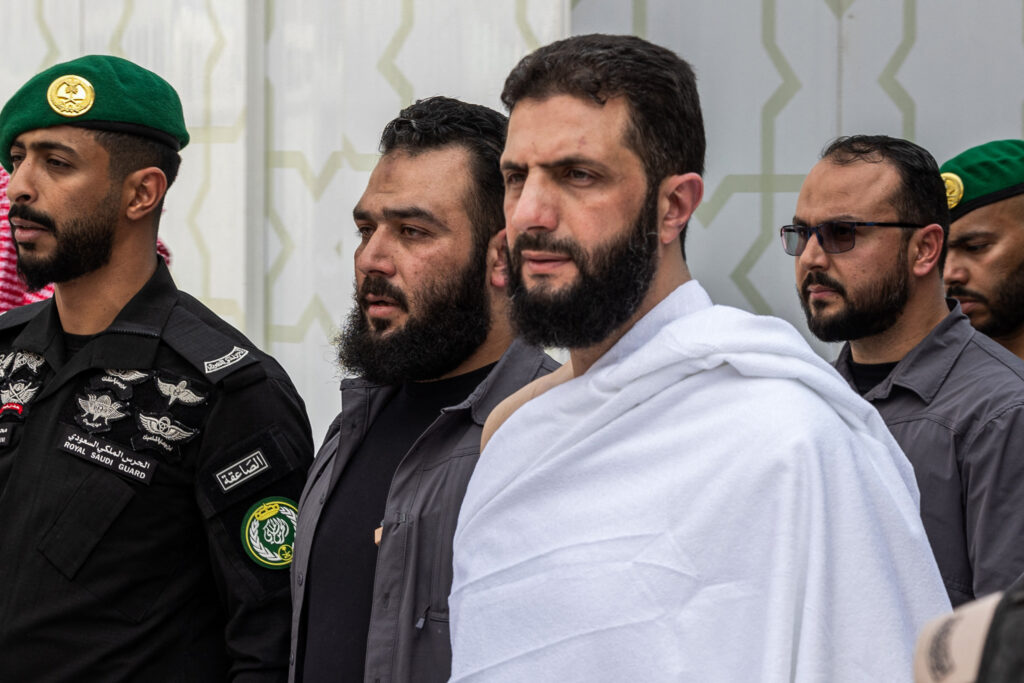The president expressed deep concern over the recent escalation, describing it as part of a broader plan to fracture the country from within. He spoke passionately about the dangers of sectarian manipulation, warning that external forces were actively working to draw Syrian communities into their sphere of influence. Specifically addressing the Druze population, he called on them to remain vigilant and not be lured into alliances that do not serve Syria’s interests.
“This is a time for unity, not division,” he declared. “We will not allow our people to be pawns in the hands of outsiders who do not care for Syria’s sovereignty or the future of its citizens.” His message was clear: any attack on Syria is an attack on all Syrians, regardless of their ethnic or religious background.
Throughout the address, the president portrayed the recent attacks not just as military actions, but as part of a psychological and political war aimed at weakening national solidarity. He urged all communities to stand together and resist narratives that seek to pit them against each other.
He also reaffirmed the government’s commitment to protecting every citizen and every region of the country, stating that national institutions are working tirelessly to ensure stability and safeguard the rights of all Syrians. “No community will be left unprotected,” he said. “We are one homeland, one people, and one future.”
In a symbolic moment, he spoke of Syria’s long history of overcoming adversity—from colonial occupation to civil conflict—and how the spirit of resilience has always defined the nation. He referenced the contributions of all Syrian communities to the country’s cultural and historical legacy, reinforcing a sense of shared identity.
The president did not directly mention the country responsible for the strike, but his tone made it evident that he viewed the assault as a violation of Syrian sovereignty and an affront to regional peace. He warned that such actions would only strengthen Syria’s resolve to defend itself and emerge stronger.
He concluded by calling for calm, patience, and unity, urging Syrians not to fall into the trap of retaliation or panic. Instead, he emphasized the importance of coordinated national response through legal and diplomatic channels. “Let our answer be discipline and dignity, not chaos,” he urged.
The speech, broadcast across the nation, was widely seen as a call to close ranks and resist fragmentation. In the aftermath of the strike, it served both as reassurance and as a rallying cry, reinforcing the message that Syria remains unbowed and determined to chart its own course despite mounting external pressures.
President Ahmed al-Sharaa has delivered his first public address since the recent military strikes on Syrian territory. In his speech, he firmly assured the nation of its resilience in the face of foreign aggression and attempts to destabilize the country. He emphasized national unity and condemned any efforts to exploit internal divisions, particularly those involving the Druze community.
The president expressed deep concern over the recent escalation, describing it as part of a broader plan to fracture the country from within. He spoke passionately about the dangers of sectarian manipulation, warning that external forces were actively working to draw Syrian communities into their sphere of influence. Specifically addressing the Druze population, he called on them to remain vigilant and not be lured into alliances that do not serve Syria’s interests.
“This is a time for unity, not division,” he declared. “We will not allow our people to be pawns in the hands of outsiders who do not care for Syria’s sovereignty or the future of its citizens.” His message was clear: any attack on Syria is an attack on all Syrians, regardless of their ethnic or religious background.
Throughout the address, the president portrayed the recent attacks not just as military actions, but as part of a psychological and political war aimed at weakening national solidarity. He urged all communities to stand together and resist narratives that seek to pit them against each other.
He also reaffirmed the government’s commitment to protecting every citizen and every region of the country, stating that national institutions are working tirelessly to ensure stability and safeguard the rights of all Syrians. “No community will be left unprotected,” he said. “We are one homeland, one people, and one future.”
In a symbolic moment, he spoke of Syria’s long history of overcoming adversity—from colonial occupation to civil conflict—and how the spirit of resilience has always defined the nation. He referenced the contributions of all Syrian communities to the country’s cultural and historical legacy, reinforcing a sense of shared identity.
The president did not directly mention the country responsible for the strike, but his tone made it evident that he viewed the assault as a violation of Syrian sovereignty and an affront to regional peace. He warned that such actions would only strengthen Syria’s resolve to defend itself and emerge stronger.
He concluded by calling for calm, patience, and unity, urging Syrians not to fall into the trap of retaliation or panic. Instead, he emphasized the importance of coordinated national response through legal and diplomatic channels. “Let our answer be discipline and dignity, not chaos,” he urged.
The speech, broadcast across the nation, was widely seen as a call to close ranks and resist fragmentation. In the aftermath of the strike, it served both as reassurance and as a rallying cry, reinforcing the message that Syria remains unbowed and determined to chart its own course despite mounting external pressures.

